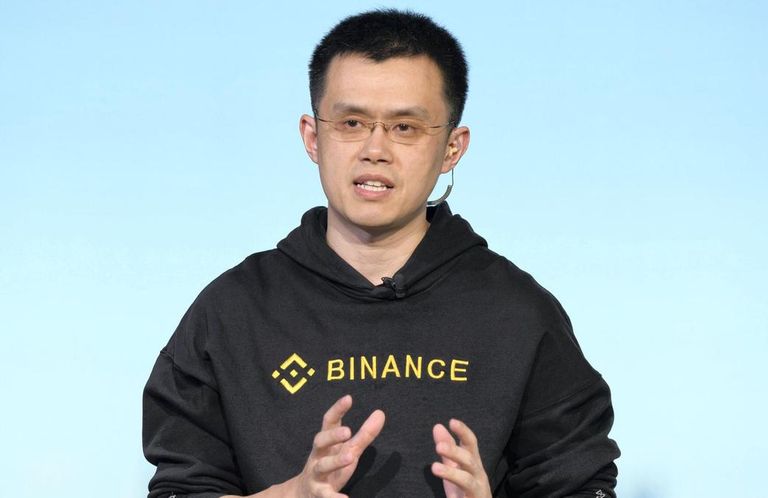Few leaders have faced a more pivotal career transition than Binance‘s Richard Teng.
Teng, a former regulator, has been at the helm of the company for the past 10 months after being appointed directly by the co-founder and former CEO of the crypto exchange, Changpeng Zhao (CZ).
His leadership comes at a critical juncture for the company, navigating regulatory scrutiny and public scepticism following CZ’s departure—though he never did imagine himself leading Binance, given his background.
Yet, his belief in the transformative potential of blockchain technology ultimately drew him into the industry. Teng first joined Binance in 2021 as the CEO of its Singapore business before becoming the firm’s global Head of Regional Markets.
Now, as CEO, he is tasked with reinforcing the company’s transparency and security. Speaking at the TOKEN2049 conference in Singapore last week, the CEO shared how the organisation has evolved since CZ’s departure and his predictions of the industry’s future.
“We have to continue to change”
Drawing a comparison to the industry’s current state, Teng noted that the crypto landscape has undergone significant changes since CZ first took the helm at Binance.
When CZ was leading the company, it was essentially a founder, CEO-led company. If you remember, Binance started in July 2017—it was a pretty young company, and at the time, rules and regulations [surrounding the crypto industry] still have not been developed.
Richard Teng, CEO of Binance

Today, roughly one-third of global regulators are starting to oversee the crypto industry. Compliance and regulatory measures have become much more stringent than in Binance’s early days—a landscape in which “CZ has not operated in”.
“We have to continue to change with the changing landscape,” said Teng. The company has since shifted to a board-led governance model with a seven-person board of directors to meet regulatory expectations.
According to the CEO, this move aligns Binance’s structure more closely with what “regulators are used to”. It also provides the exchange with a more stable leadership framework as it navigates the global regulatory landscape.
They invested US$213 million into compliance programmes in 2023
Since its pivot, Binance has seen a 40 per cent increase in institutional and corporate investors joining the platform in 2024 alone. It has also secured 19 licences worldwide, with its most recent approvals in Thailand, Brazil, and India.
However, it’s not as easy as it seems for the exchange. Though there has been some regulatory clarity in the crypto landscape, there’s no denying that it is still in its nascent stages—there is still a pressing need for more defined regulations.
Take the licensing processes, for instance. Securing the 19 approvals has proven to be a significant challenge for the company, particularly given the diverse compliance requirements across different countries.
Every jurisdiction has its own rules and regulations. Some jurisdictions define crypto as a security, while some have totally different views. In Singapore, [for instance], crypto is considered to be a digital payment toolkit. In each of these places, the views and regulations are so different, [so] you have to really understand what the provisions are and how to comply with them.
Richard Teng, CEO of Binance
This is why the company has started investing heavily in compliance programmes, especially over the last year. In 2023, Binance spent about US$213 million on compliance programs—roughly 35 per cent higher than its spending in 2022—and plans to maintain substantial investments in this area moving forward.
Before the end of the year, it is looking to hire at least 170 more employees for compliance teams, with plans to build a 700-strong compliance workforce by the end of 2024.
Teng is also actively seeking a permanent headquarters for Binance as part of its broader efforts to strengthen its relationship with global regulators and ensure its long-term sustainability.
“2025 is going to be much bigger”
When asked about the current state of the crypto industry, Teng said that 2024 has been a landmark year for crypto adoption, driven by a surge of institutional interest.
In January, the US approved the first exchange-traded funds (ETFs) for spot prices of bitcoin, followed by the approval of similar funds for ether in July.
Meanwhile, institutions that were once cautious, like BlackRock, are now stepping into the crypto arena— its once sceptic CEO, Larry Fink, is now a “major believer” of cryptocurrencies, even going on to call it “digital gold.”
Teng shared that this growing institutional interest is critical to driving mainstream adoption, attributing Bitcoin’s record high earlier this year—which soared above US$70,000 in March—to “the effect of institutions coming through”.
Although he acknowledges that global cryptocurrency ownership only hovers between 5 to 7 per cent of the population, he remains bullish about the future of cryptocurrency.
“In any sector where youth and young adults are embracing, that’s going to be the industry of the future,” said Teng. “The speed at which people are embracing digital assets is truly remarkable.”
We have 225 million users. It took us five years to get our first 100 million users, and the second 100 million users took us two years. The third? Even faster.
Richard Teng, CEO of Binance
Looking forward, Teng believes that “2025 is going to be much bigger than 2024”, citing lower interest rates in the US and crypto’s place in the current market cycle. “Regardless of the market, we are bullish, and we will continue to build the best platform out there,” Teng said.
Featured Image Credit: Vulcan Post